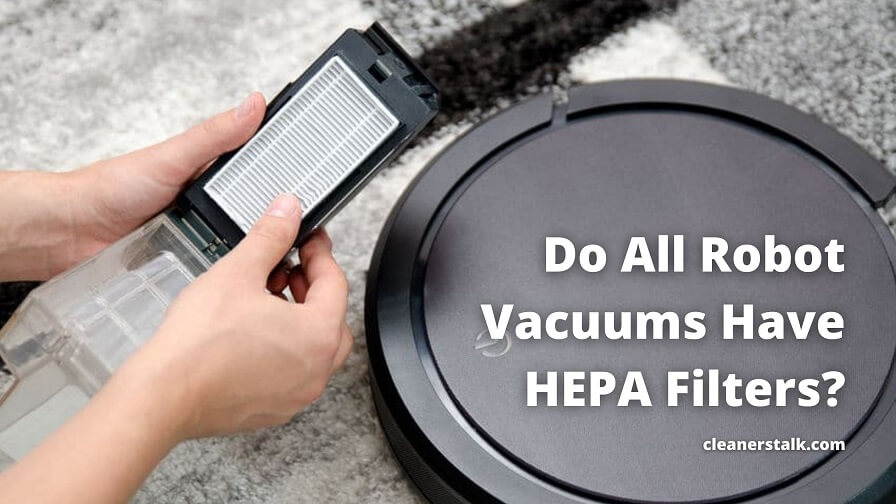
Do Robot Vacuums Have HEPA Filters?
Cleaners Talk is reader-supported. This post contains affiliate links, we may earn a commission at no additional costs to you. As an Amazon Associate we earn from qualifying purchases.
Robot vacuums are a thing of beauty. They allow you to sit back and relax while they clean your house intuitively, moving along the floors to clean any dust, dirt, and debris. However, not many users seem to be discussing the filtration efficiency of robot vacuums. Are they equipped with high-performance HEPA filters?
Do robot vacuums have HEPA filters? All robot vacuums do not have HEPA filters. However, they have high-efficiency filters made from a special material that capture 99% of particles measuring 10 microns or greater. HEPA filters, on the other hand, capture 99.97% of particles measuring 0.3 microns or greater.
With that said, does this mean that robot vacuums are less effective than regular vacuums? There’s more to this than meets the eye. In this post, we will talk more about: do robot vacuums have HEPA filters or not? Hopefully, this post provides you with the most helpful information on robot vacuums’ filtration effectiveness.
What Are HEPA Filters?
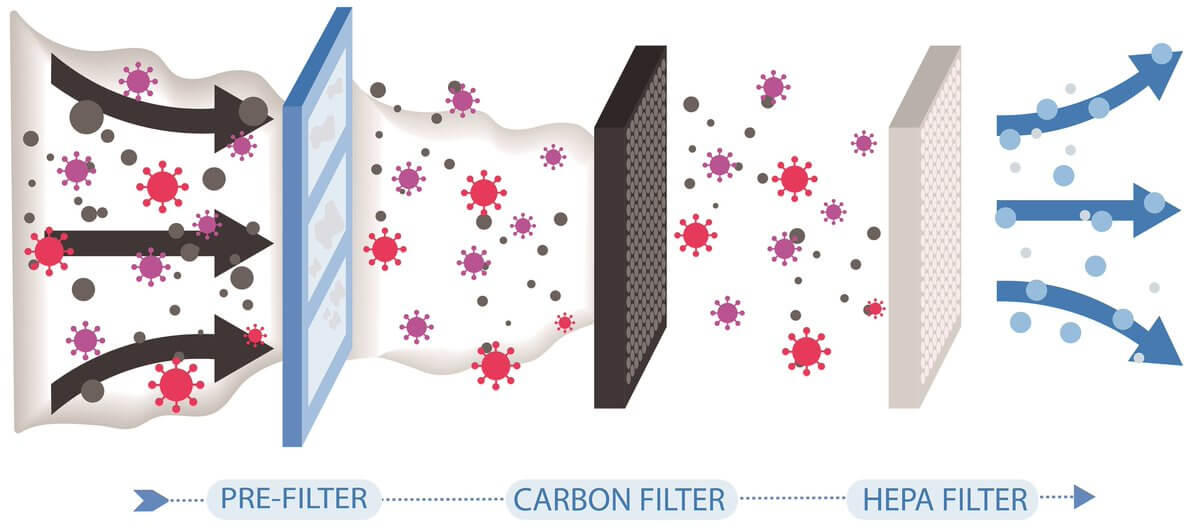
HEPA stands for High-Efficiency Particulate Air. According to Medify Air, it is a standard developed by the U.S. Department of Energy during the 1940s to contain the spread of particles and contamination from nuclear testing. The standard has since moved into the consumer market and is common for air purifiers.
The HEPA standard traps very small particles, many of which are invisible to the human eye and harmful to your health, especially for allergy sufferers.
To meet the HEPA standard, a filter must remove 99.97% or more of all particles, which are 0.3 microns (micrometers) in diameter. Put another way, for every 10,000 particles that are 0.3 microns in diameter, only three of them pass through. A filter either meets or fails the HEPA standard, there is no in-between.
The Purpose of HEPA Filters
Many people often think that air pollution only happens outside the room. Unfortunately, that’s not true. When you are inside your home, certain things like dust, pollen, and dander may enter from the outdoors. These forms of air pollution may irritate your lungs, causing allergies and asthma.
The worrying part is, you might simply be ‘rearranging the dirt’ if you use a vacuum cleaner without a HEPA filter. While a cleaner can trap some of the particles inside the bag, some may also leak out and circulate back into the room. This is where a vacuum cleaner, equipped with a HEPA filter, comes in handy.
If you suffer from allergies, and are looking to find the healthiest form of cleaning possible, then be sure to buy a vacuum cleaner equipped with a HEPA filter. It’s arguably the most important feature to look for in a vacuum cleaner. HEPA filters are recommended for people who may be sensitive to allergens.
BEWARE: HEPA-Grade or HEPA-Style Filters
If you decide that HEPA is right for you, pay attention to a few important variations of HEPA. It’s important to note that the U.S. HEPA standard is the one to look for.
On the other hand, there are also HEPA-grade or HEPA-style filters. Unlike True HEPA, “HEPA-Grade” and “HEPA-Style” filters fail the standard. These terms are essentially meaningless and are used in order to confuse consumers into purchasing lower quality filters and air purifiers.
PRO TIP: How can you differentiate between an authentic HEPA filter from a HEPA-style filter? It’s simple: an authentic HEPA filter has a serial number and its test result embedded on it. If the result is lower than 99.97%, it’s not an authentic HEPA filter. Another tell-tale sign is the price. If it’s cheap, it’s most probably not true HEPA.
Do Robot Vacuums Have HEPA Filters?
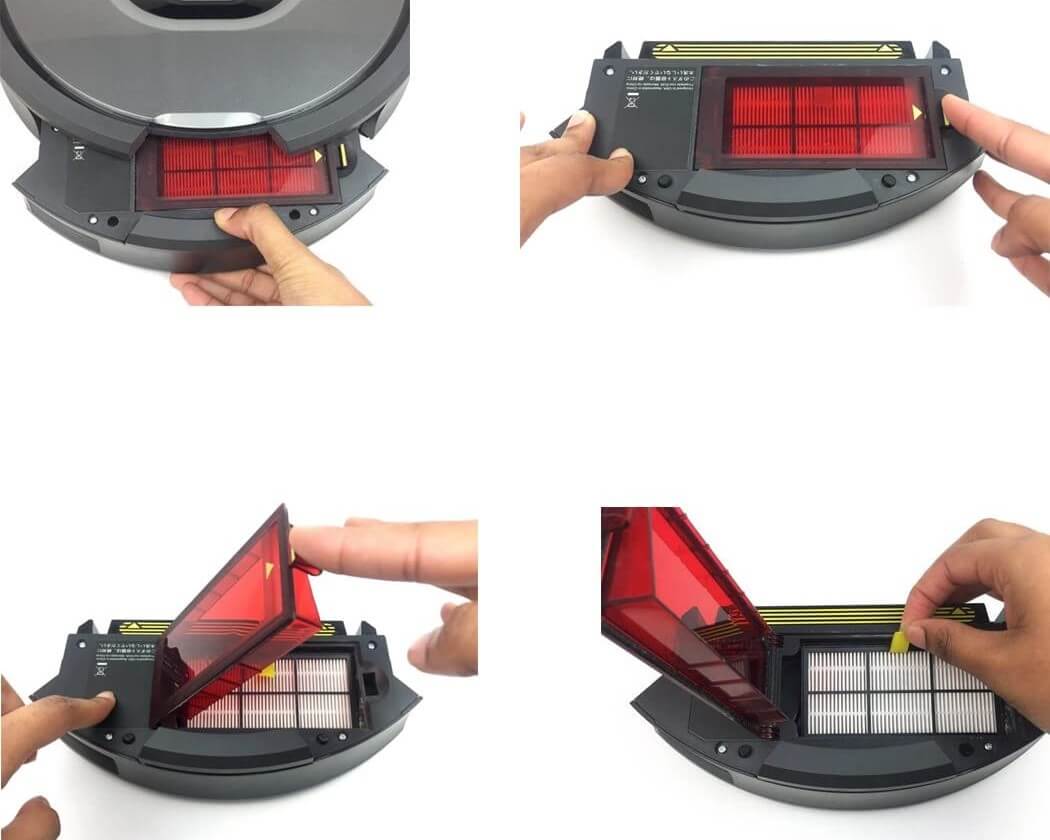
Most robot vacuums are advertised by having HEPA-style or HEPA-grade filters.
Now that you know the difference between a true HEPA filter and a HEPA-grade filter, let’s examine what filters do robot vacuums have. All robot vacuums do not have HEPA filters. However, they are equipped with high-efficiency filters designed to capture 99% of particles sized 10 microns.
1. Do HEPA filters in vacuums work?
Yes, HEPA filters in vacuums do work. In fact, controlled studies, like this one from the Journal of the Air & Waste Management Association, suggests that vacuums with HEPA filters perform better than the average vacuum. If you have severe allergies, a vacuum with a HEPA filter might be the solution you’re looking for.
While the average vacuum filter can collect large dust particles, smaller contaminants like dust mites and dander may be too small for it to catch. Therefore, smaller particles may be dumped back into the room during the vacuuming process. With that said, a vacuum that collects more than 99 percent of fine particles will be more expensive.
2. Do Roombas have HEPA filters?
iRobot Roomba robot vacuums are some of the most well-known robot vacuums in the market today. They are simply top-notch gadgets, and are certainly up there with the best of them. Because they are very popular, it’s understandable that many ask the question: does a Roomba have a HEPA filter?
So, do Roombas have HEPA filters? Unfortunately, iRobot Roomba vacuums do not have HEPA filters. However, Roombas use high-efficiency filters, which are HEPA-grade, made from a special material that capture only 99% of dust, mites, and allergens as small as 10 microns.
3. Which Roomba has a HEPA filter?
So, which Roomba has a HEPA filter? None of the Roomba robot vacuums have a HEPA filter. In fact, two of the most popular series, the Roomba 800 Series and 900 Series, which are often considered to have HEPA filters, do not have HEPA filters. However, they are equipped with HEPA-grade filters.
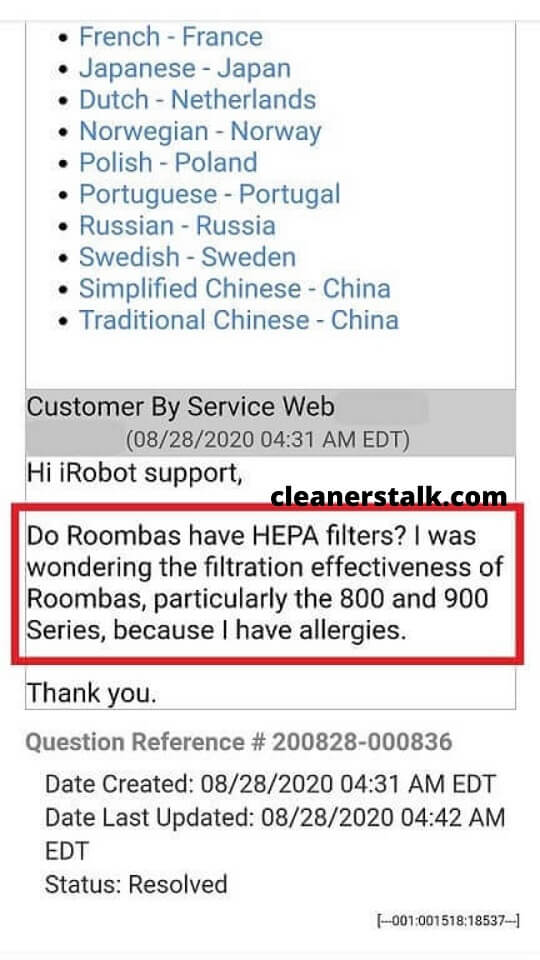
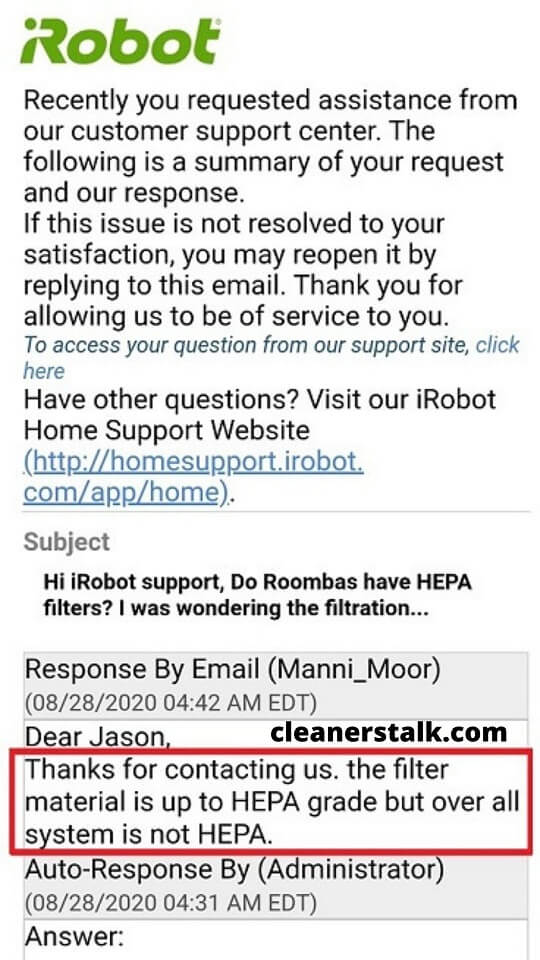
To confirm the above statement, one of our writers contacted the manufacturer, iRobot, directly. The manufacturer has confirmed that all Roombas, including the Roomba 800 Series and 900 Series, are only equipped with HEPA-grade filters, not true HEPA filters. Many information found online are false.
Robot Vacuum Filters Consideration
Buy a robot vacuum if: You are only using a robot vacuum in between deep-cleaning sessions. If you use a steam cleaner or regular vacuum cleaner to clean your house, you can use a robot vacuum to maintain the overall cleanliness of your house. Fortunately, a regular robot vacuum will get the job done.
Most robot vacuums use high-efficiency filters that are good enough to clean carpets and keep your tile floors dust-free. Not to mention, they do a great job of keeping your floors squeaky clean. Just keep in mind that robot vacuums will not filter the smallest of particles that may trigger an allergy reaction.
Taking everything into consideration, a robot vacuum is an excellent cleaning gadget that can help you maintain a clean house. However, if you are a severe allergy sufferer, or you have pets roaming around your house, a robot vacuum may not filter the dust, dander, and pollen as effectively as a regular vacuum cleaner.
Final Verdict
And there you have it, the complete answer to the question: do robot vacuums have HEPA filters? Now that you know the difference between HEPA filters and HEPA-grade filters, you will know what to look for when shopping for the ultimate house-cleaning tool that is just right for you and your family. 🙂
You may also want to read our comparison reviews:
